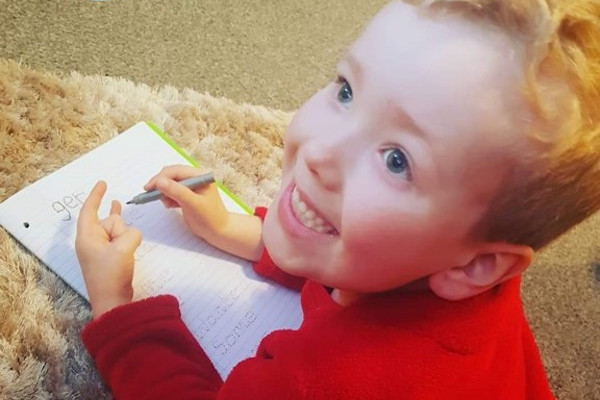
by Simon Haworth
Amid the blaze of publicity surrounding the appalling murders of Arthur Labinjo-Hughes and Star Hobson there have been calls for more intervention and less aversion to taking children into care. Social workers have been told – by those both inside and outside children and families social work – they must not be fooled by manipulative and deceitful parents.
The government has decided upon a national review into the circumstances leading up to Arthur’s death. In parliament Nadhim Zahawi, the education secretary, said that “if there is any evidence, any inkling, any iota of harm to any child, that child [should be] taken away immediately”.
Thankfully, there is as yet no law or policy allowing for child removal based on an “inkling” of harm. Such statements, made in the heat of the moment and with the benefit of hindsight, do not recognise the complex and difficult situations social workers and other professionals face.
A child protection investigation starts when an interdisciplinary strategy group decides there is “reasonable cause to suspect a child is suffering or likely to suffer significant harm”. If this represents an inkling of harm, then in the last five years there were almost a million (984,500) such investigations under section 47 of the Children Act.
Target-driven cultures
Yet the vast majority of these did not find the child required removal from home – or even a child protection plan. Research shows that one in every seven children were subject to a child protection enquiry before their fifth birthday by 2015-16, compared with one in 16 in 2009-10.
Over decades, reforms to children and families social work that have focused on target-driven cultures, efficiency and procedures, and taken social workers further away from families, seem to have achieved little for children and their safety. We now have systems that are more focused on organisational needs and targets than the needs of children and their families.
Research has found no clear evidence for an overall decrease in child maltreatment despite reams of policies and decades of practice focused upon the safeguarding of children. These contexts for practice can have real, and often long-term, negative consequences for children and their families.
There have been more than 1,500 serious case reviews, dating all the way back to 1945. These have often been criticised for offering repetitive findings, recommendations that don’t improve practice, and ‘learning’ that has very limited impact on practice.
Any reviews of practice, including those now being initiated in respect of Arthur, need a rigorous focus on the complexity of working with children and families and the underlying causes of the issues families face and those inhibiting good social work practice.
Related articles
Tragedies fuel defensive practice
More investigation on its own simply leads to too many families coming into child protection and care proceedings. For pretty much the whole of this century the numbers of investigations have spiralled, with numbers tripling from 65,000 in 2003 following the publication of the review into Victoria Climbié and increasing year on year, ramped up again following the tragedy of Peter Connelly (Baby P) to around 200,000 in each of the last three years.
Between 2014-17 child protection plans increased by 24%, care orders by 25% and care proceedings by 56%. This was despite the numbers of referrals remaining relatively stable. Such statistics reveal a system where more authoritarian responses have become the norm and practice has become intensely focused on negating risk and uncertainty.
In our anger, horror and desire to make sure that nothing like this happens again, we do precisely the wrong thing. We apply increasing pressure on those whose difficult job it is to protect children.
The Daily Mail names and shames social workers even before there has been a review of what happened. We call for workers to do more, investigate more and remove more children.
It is thus not surprising that, fired up by previous tragedies, practice becomes increasingly defensive and investigative, and we fail to make the relationships with families and local communities that can protect children.
We currently have a system that can both over- and under-intervene. What is needed is a system that investigates less families and concentrates on fewer interventions that are more focused, thorough and inclusive of families. Responses that are based firmly in research and evidence, but also compassion and support. A return to support under section 17 of the Children Act 1989, as was originally intended.
Perhaps if nearly a decade of austerity politics had not reduced services to a minimum with investigations prioritised, in a case like Arthur’s we might have provided ongoing help to a child whose mother had murdered someone in his household, making what happened later far less likely. Our focus on blame and investigation undermines our ability to help.
A system based on extreme cases is illogical and unfair
There will sadly likely always be parents who are willing to act in genuinely cruel ways. However cases such as Arthur’s and Star’s are tragic outliers and not typical of the vast majority of families who come into contact with children’s services.
To design a system around such cases and parents is illogical and deeply unfair on the many families struggling due to a range of factors, including poverty, social exclusion, neighbourhood deprivation and indeed lack of local supportive services following significant cuts. Further moves to a system founded on overly zealous vigilance and investigation will only exacerbate the troubling issue of families coming under the gaze of intrusive state services unnecessarily, and encourage draconian actions such as children being removed from their parents when this is avoidable.
Social work is at its best when it adopts a relationship-based, proportionate and humane approach to risk, and gets to know and work with children and their families. A social work that recognises that risk, uncertainty and ambiguity are inherent to working with children and families. We need a sector that understands that risk can be managed but not eliminated and that practice responses must not be polarised or simplistic, but should recognise the complexity of humans and their behaviours.
Shame is a dominant emotion in child protection social work. Shame for the parents and families brought into a stigmatising system to have their parenting picked apart, and shame for social workers when things go wrong.
We all need to stand together to develop a more supportive, collective and compassionate approach to child protection that recognises and works with the inherent complexity of families, and works with their often difficult and socioeconomically deprived circumstances.
Simon Haworth (@SiHaworth) is a lecturer at the University of Birmingham currently doing a PhD on child neglect and its assessment. He is a founding member of the Best Interests of the Child Review (BIC Review) and a core member of the Parents, Families and Allies Network (PFAN). He has written this piece with the parents of BIC and PFAN. With thanks to Natasha Phillips and Professor Andy Bilson.





 Bournemouth, Christchurch and Poole
Bournemouth, Christchurch and Poole  Hampshire County Council
Hampshire County Council  Lincolnshire County Council
Lincolnshire County Council  Norfolk County Council
Norfolk County Council  Northamptonshire Children’s Trust
Northamptonshire Children’s Trust  South Gloucestershire Council
South Gloucestershire Council  Wiltshire Council
Wiltshire Council  Wokingham Borough Council
Wokingham Borough Council  Children and young people with SEND are ‘valued and prioritised’ in Wiltshire, find inspectors
Children and young people with SEND are ‘valued and prioritised’ in Wiltshire, find inspectors  How specialist refugee teams benefit young people and social workers
How specialist refugee teams benefit young people and social workers  Podcast: returning to social work after becoming a first-time parent
Podcast: returning to social work after becoming a first-time parent  Podcast: would you work for an inadequate-rated service?
Podcast: would you work for an inadequate-rated service?  Family help: one local authority’s experience of the model
Family help: one local authority’s experience of the model  Workforce Insights – showcasing a selection of the sector’s top recruiters
Workforce Insights – showcasing a selection of the sector’s top recruiters 

 Facebook
Facebook X
X LinkedIn
LinkedIn Instagram
Instagram
“Risk, uncertainty and ambiguity.” Now place that in the context of the 28 families, 15 children, on my “caseload”. Real world problems can’t be wished away by a love of a non-existant relationship based social work. I retire in 2022. The social work I do now, always remaind a “basic grader”, is not the social work I did on qualifying in 1983. The erosion of autonomy, thoughtfulness, care, love, advocacy, laughter, tears, in short basic human compassion, has been and continues its onward grind. Managerialism, bureaucracy, false reliance on “Regulation” to improve practice are as insidious as austerity politics. Some of our bossess are very comfortable with cuts to budgets and staff numbers, that too is undeniable. So yes, let’s do social work that inspires pride in our work and is meanigful to complex lives of people whom we work with. I am saddened to conclude however that with SWE setting the ‘standards’ there can’t be a vision for a more human social work. “Have you written up your assessments yet” and “upload your CPD or we will prosecute you” are not the inspirations.
This needs to start at the beginning, at the start of the education of Social workers, it has been placed as elite, moudling workers instead of looking at life experience, this counts especially those who have had children or worked with children or even those who may have experienced abuse. Yes its a professional job but not everyone who passes the course is able to be a social worker, maybe think about a difference entrance to the profession as many are leaving it. When in university and on placements, good supervision, working with experienced workers and have good management in place. To have professional curiosity, not be held down by beuracracy and systems that are all about stats and performance, high case loads and lack of discussion. There are some really good child protection teams out there who have supported countless children and their families, lets not forget these parents were manipulative and scheming, this is where experience counts and to ensure that those who are sent to support have the right tools.
lest we forget that SSD have been subject to ‘austerity measures’ for more than 10 years and the Covid -a diminishing workeforce too
Good to read.
Realistic and emotionally mature insight one that has been expounded by others – as you point out.
While there remain politicians and the decision makers who continue to be driven by the endemic basic instinct to win over others; by those who are psycho socially immature and, who have the compassion of the Victorian workhouse, then your insight as to remedy for helping children and their families, not matter how accurate becomes idealistic fanciful utopia.
Conservatism with a small ‘c’ seems to mean we as a society are always behind in making changes such that are highlighted by those such as yourself, changes that seek to improve the human condition – changes which can then be delayed or prevented from realisation if not supporting an advancement in capitalism.
A very balanced viewpoint . . .refreshing.
I do not think anyone is suggesting that we remove all children where there is suspected abuse. However in Arthurs case, he asked for help, he said he was going to be killed. There appears to have been many reports & evidence that he was in danger. It was similar for Star, there was clear evidence that she was not safe. Reports were made, no one was suspecting, they were telling the authorities that these children were in real danger. We, the public cannot understand why nothing was done to protect these children. Thats the outcry,
“Research shows that one in every 16 children were subject to a child protection enquiry before their fifth birthday by 2015-16, compared with one in seven in 2009-10.”
Am I reading this right? It seems to say that far fewer children in 2015-16 were subject to CP enquiries before their fifth birthday (1 in 16) than in 2009-10 (when it was 1 in 7)?
But the general tone of the article is that far too many children are being investigated and made subject to CP plans. Which doesn’t make sense, given the figures quoted above.
So either I’ve misunderstood, or those figures are wrong, or the figures are right but have been used to argue the exact opposite of what they show.
I agree with Simon Haworth. Politicians should take note of what he has said. I would say that over-intervention and draconian actions are already happening in this country and children are being removed from families unnecessarily now in family courts because this government only appears interested in targets and profit.